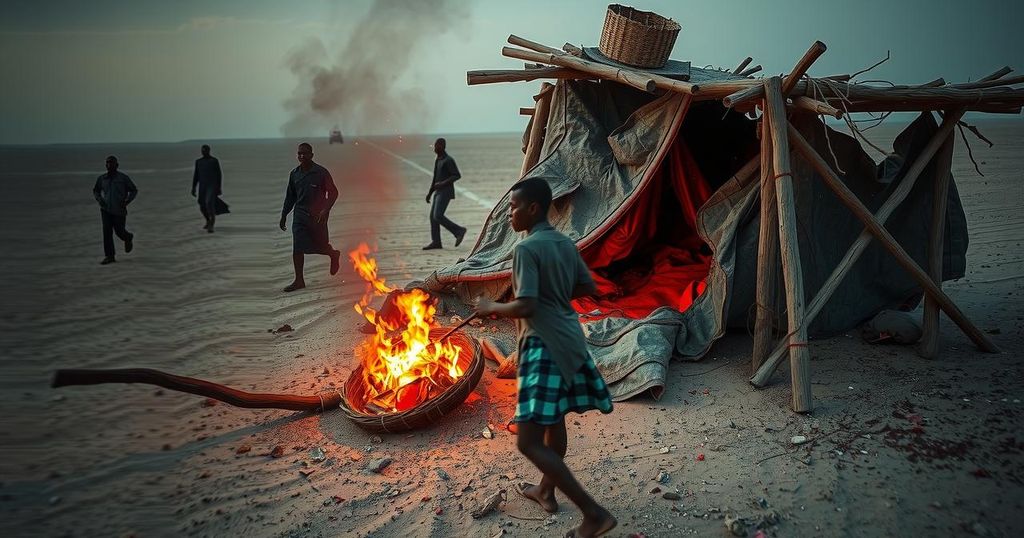Thirty-nine people, including children, have been killed in two separate jihadist attacks in western Niger near the Burkina Faso border. The assaults took place in Libiri and Kokorou, areas known for violent extremism, prompting the Nigerien defense ministry to denounce these acts as barbaric. The Nigerien military regime claims to be combating these insurgencies, yet violence persists, leading to significant humanitarian concerns in the region.
In recent violent outbreaks in western Niger, at least thirty-nine individuals, including children, have been reported killed in two distinct attacks, as confirmed by the Nigerien defense ministry on Saturday. The incidents transpired in the communities of Libiri and Kokorou, recognized regions near the unstable border with Burkina Faso, which has become increasingly notorious for jihadist activities. According to the ministry’s announcement, the fatalities included 21 victims in Libiri and 18 in Kokorou, occurring between December 12 and December 14.
The ministry denounced these acts as “barbaric,” emphasizing that they targeted defenseless civilians and were executed by criminals pressured by ongoing military operations of defense and security forces. The Tera region, situated in the volatile tri-border area of Niger, Mali, and Burkina Faso, remains a stronghold for extremist groups associated with the Islamic State and Al-Qaeda, which have pursued a violent insurgency in the area, perpetuating a state of unrest.
Earlier occurrences highlight the escalating violence, such as an attack on December 7, where gunmen killed 21 civilians from a goods convoy. A subsequent assault on December 11 in Chatoumane reportedly claimed the lives of over 90 soldiers and 40 civilians, although Niger’s military junta rejected these reports as “baseless assertions,” criticizing international media for alleged misinformation. Following these incidents, the junta imposed a three-month suspension of BBC radio as part of a broader attempt to control the narrative in the aftermath of their July 2023 coup.
The Nigerien government continues to confront rampant jihadist violence despite ongoing military interventions. The region’s difficult terrain and porous borders provide sanctuary for militants who consistently target both military personnel and innocent civilians. The government has urged for enhanced security measures and international support to effectively tackle the rising threats posed along its borders. Meanwhile, humanitarian crises loom large as the violence displaces thousands, leaving many civilians in vulnerable conditions amidst instability in the region.
The ongoing conflict in the tri-border region of Niger, Mali, and Burkina Faso is characterized by frequent attacks attributed to militant groups. These groups are often affiliated with or inspired by international jihadist organizations such as the Islamic State and Al-Qaeda. The porous borders and challenging geographical landscape allow these extremists to execute attacks not only against military targets but also against innocent civilians, contributing to a worsening humanitarian crisis. The Nigerien government, struggling with military control and the public narrative following a coup, seeks both domestic and international strategies to enhance security and stability.
The tragic killings in western Niger underscore a tragic escalation of violence targeting innocent civilians and highlight the persistent threat posed by jihadist groups in the region. The Nigerien government faces severe challenges in restoring order and mitigating humanitarian consequences amid widespread insurgency. Enhanced international cooperation and support are essential for addressing these complex security concerns as the conflict continues to impact the lives of many in this vulnerable region.
Original Source: dailypost.ng






